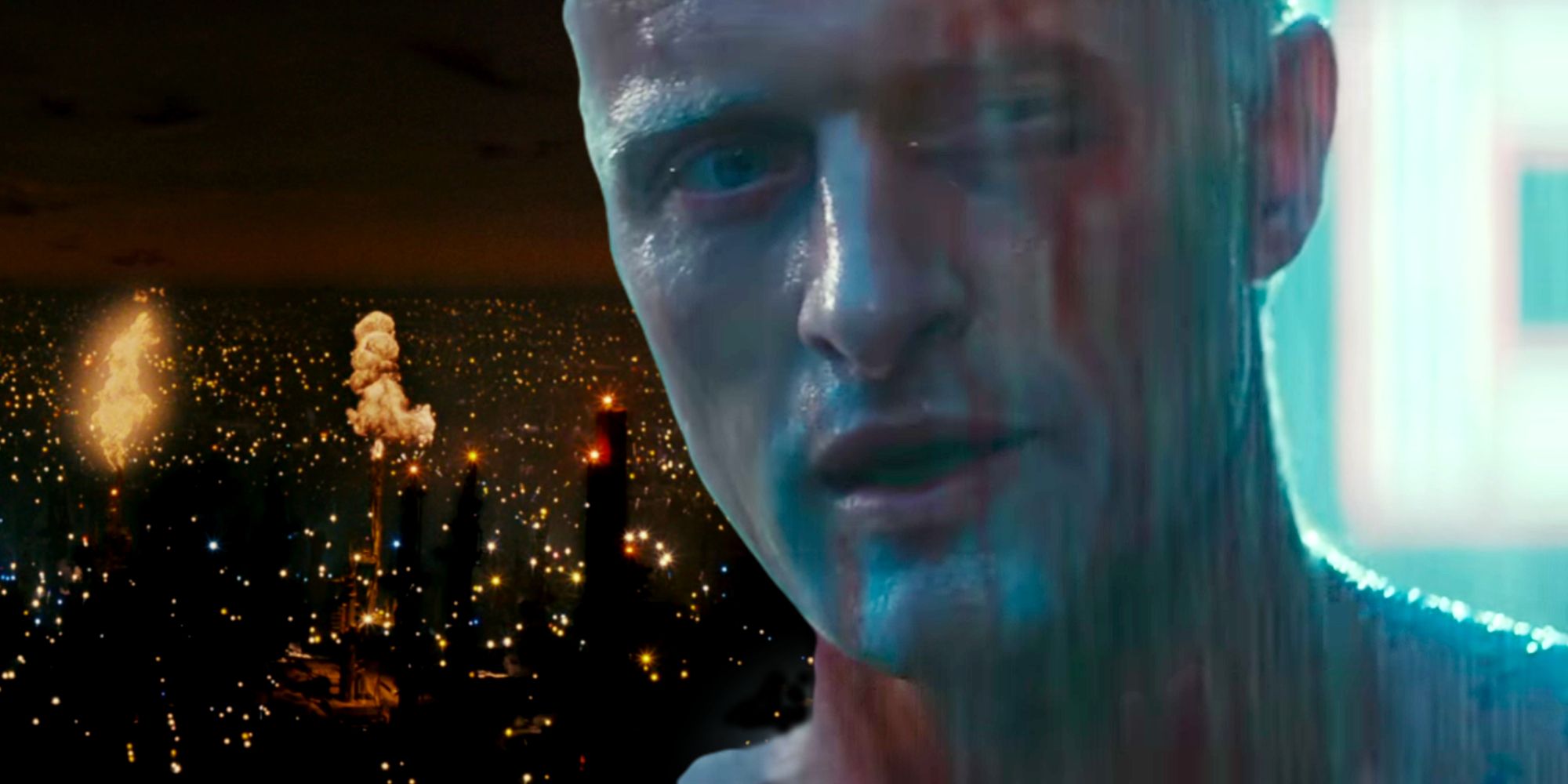Blade Runner What Roy Battys Tears In The Rain Speech Means
Blade Runner: What Roy Batty’s Tears In The Rain Speech Means
Ridley Scott’s noir sci-fi, Blade Runner, closes with Roy Batty’s iconic monologue, prior to his death. What does Batty’s “tears in rain” speech mean?
You Are Reading :[thien_display_title]

Ridley Scott’s neo-noir dystopian sci-fi, Blade Runner, ends with Roy Batty’s iconic “tears in rain” speech, which has been hailed as one of the most celebrated monologues in film history. But what does it mean? The cultural influence of Blade Runner as a work of art has been colossal, with its themes of divisive politics and vulturous capitalism that have become more relevant now than ever.
While Blade Runner’s perpetually rain-drenched, neon-tinted cityscapes, coupled with Greek composer Vangelis’ haunting soundtracks lull viewers to revisit this cinematic landmark time and again, the film’s dystopian shell is devoid of genuine human emotion. Roy Batty is a Nexus-6 ‘replicant’, who are bioengineered beings, cast out at the lowest rung of the social order and exploited on off-world colonies. Most humans, including Deckard (Harrison Ford), refuse to identify with the other, negating the very quality of empathy that is supposed to distinguish humans from replicants. Interestingly, it is Roy Batty (Rutger Hauer) who emerges as the emotional fulcrum of Blade Runner, while exemplifying the bittersweet nature of mortality in his final moments.
Instilled with sentience and the ability to feel, Roy naturally yearns for more, as his potential is limited by the four-year life span embedded into his genetic coding, as a fail-safe measure by the Tyrell Corporation. By leading a group of renegade replicants, Roy attempts to negotiate for more life with his maker, who dismisses the idea, like a cruel god attempting to comfort their creation with empty clichés. One sees Roy’s face contorted by rage, grief, and existential torment, which is followed by an act of Oedipal violence when Roy kisses his creator. On returning to J.F. Sebastian’s quarters, Roy finds Pris, his only remaining friend, dead at the hands of Deckard. Feral anguish consumes him and he chases Deckard like a wounded hound until there is a point in which Deckard is dangling from a metal strut on a roof, inches away from death. For the first time, one sees Deckard gripped by fear – a fear that torments replicants throughout their existence, which is summed up in Roy’s emphatic lines:
“Quite an experience to live in fear isn’t it? That’s what it is to be a slave.”

Apart from being a slave to a cruel, indifferent world, replicants like Roy are also a slave to time, which is too brief a candle to burn into a lasting legacy. Despite being in a position of power in Blade Runner’s final moments, Roy chooses to save Deckard in an act of pity, as he can see himself in the other, even if Deckard himself is incapable of the same. It is then that Roy, clutching a white dove, says:
“I’ve seen things you people wouldn’t believe. Attack ships on fire off the shoulder of Orion. I watched C-beams glitter in the dark near the Tannhäuser Gate. All those moments will be lost in time, like tears in rain. Time to die.”
These lines brim with poetry, which, interestingly, had been enhanced by Hauer himself, who rewrote these lines into a shorter, emotionally impactful version and added the “tears in rain” phrase. This moment in Blade Runner is both aesthetically and thematically stunning: Roy, rain-drenched and battered, captures the essence of being both man and machine, along with the eternal tussle between life and death, and the horrifying beauty that lies in between. Instead of “raging against the dying of the light”, as he does throughout the film, Roy acknowledges that time waits for no one, and spends his final moments reminiscing memories experienced throughout his limited existence, before succumbing to his fate.
Although ships catching fire or gleaming weapons in the darkness of space in Blade Runner signify a life of hardship and violence for Roy, these are the only memories he can cling to. When one’s life flashes before their eyes, it is natural to look at painful memories with nostalgia, even longing, and find beauty amid chaos. Those moments, that make up for Roy’s life, are gone, washed away, futile, like tears in rain.
Link Source : https://screenrant.com/blade-runner-movie-roy-tears-rain-speech-explained/
Movies -Cobra Kai Season 3 5 Best Cobra Kai Students (& 5 Best MiyagiDo Students)
Dragon Ball 10 Strongest Opponents Faced By Vegeta Ranked
Cyberpunk 2077s Subtle (But Funny) The Office Joke Explained
Big Mouth Why Nick Kroll Plays Himself But Andrew Goldberg Doesnt
Blade Runner 2049 Edward James Olmos Returning as Gaff
Destiny 2 All Ascendant Anchors Locations In The Tangled Shore
Fast & Furious Star Ludacris Comments On Dwayne Johnson & Vin Diesel Feud
